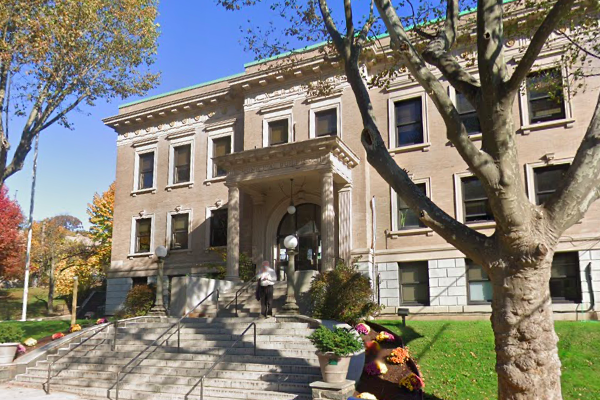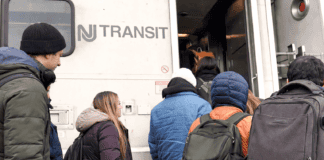
The Weehawken Township Council has introduced its fiscal year 2022 budget. If approved by the state, the council will hold a public hearing and vote on its budget at its next meeting on Dec. 22 at 7 p.m. in the 2nd Floor Chambers at Town Hall at 400 Park Avenue. For more information, go to weehawken-nj.us.
The council introduced the $48,632,319 budget at its Nov. 22 meeting. It is now awaiting approval from the state Local Finance Board in Trenton before the township can adopt it.
This year’s budget is a 1.25 percent increase since last year’s budget, according to Mayor Richard Turner. Since the 2019-2020 budget, it has decreased by 5.5 percent, Turner told the Hudson Reporter.
“I guess we could say faring better,” he said. “You know we ended the first year of COVID-19 with a $3 million deficit. This year we’re ending with a $2 million deficit.”
Revenue loss
The deficit was largely caused by a major loss in revenue as a result of the COVID-19 pandemic.
“For 18 months, our parking revenues were nonexistent,” Turner said. “We get a lot of parking revenue from the waterfront, but UBS is working from home. There’s no parking revenues.”
In addition to lost parking tax revenue, there was also a decline in revenue related to construction.
“Building permits and fees were nonexistent now since Memorial Day,” Turner said. “There was no construction going on. The developers are only starting now to get back to things that they already got approval for. So that just picked up a little bit. It’s been a very chaotic almost two years now… We had all these revenue losses: the parking tax, tax fees and permits.”
Revenue from the hotel tax also decreased as the hospitality industry was hit hard by the pandemic.
“We receive almost $1 million in hotel tax from the Sheraton and the On view and that was non existent,” Turner said. “That’s starting to come back, so we’re managing the deficit very well. The state of New Jersey has helped a lot. Senator Brian Stack has helped a lot, making sure this legislation gets through because it helps the whole state.”
Spreading out the deficit
According to Turner, the state has let municipalities spread out their deficit over a number of years.
“The state has allowed towns to adjust for the deficit, so you don’t hit the taxpayers with everything upfront,” he said. We’ve been very good at managing that. The state has put laws in place so we can take care of the deficits.”
Because of that, the township was able to keep tax rates “extremely stable,” according to Turner.
And as the deficit decreases to $2 million, Turner hopes to keep bringing it down in the next budget. That is, if the new Omicron variant of the virus doesn’t ruin those plans.
“Next year we hope to eliminate it if everything continues to go forward, except for the new variant,” he said.
New variant worries
“Everything was starting to pick up, revenues are coming in more and more,” Turner said. “We were looking forward to next year. Now we have to see what happens with the new variant.”
In terms of costs and expenses, the township slashed as much as it could to cope with the revenue loss, according to Turner.
“We have kept our expenditures down,” he said. “They are well below what they were. It’s all just a question of will everything continue to move forward or will we have a little backsliding because of the new variant? We’re approaching two years of the pandemic and things were picking up. Now we’ll see what happens.”
For updates on this and other stories, check www.hudsonreporter.com and follow us on Twitter @hudson_reporter. Daniel Israel can be reached at [email protected].









